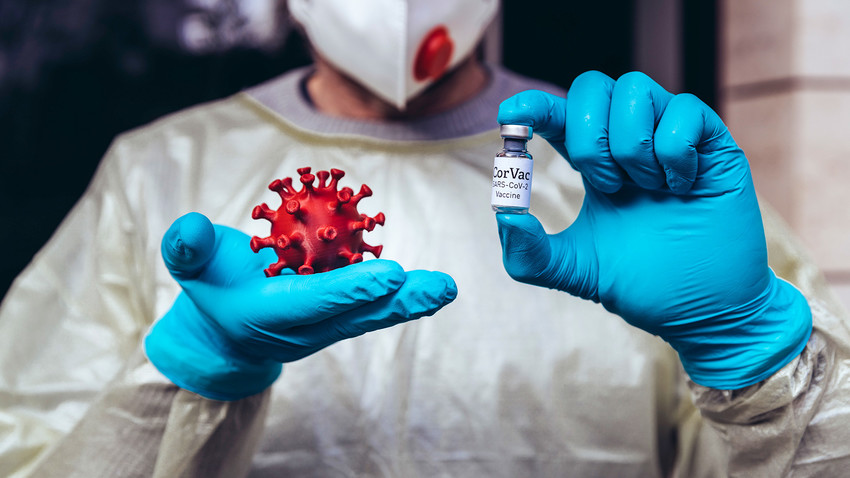Russian university completes clinical trials of COVID-19 vaccine

Healthcare worker holding model of Corona Virus and vaccine - stock photo
Getty ImagesFirst Moscow State Medical University (also known as Sechenov University) announced on July 12 that it had completed trials of a COVID-19 vaccine made in Russia. The announcement came from Vadim Tarasov, director of the Institute for Translational Medicine and Biotechnology at the First Medical University.
The vaccine was invented in the National Research Center for Epidemiology and Microbiology named after N. F. Gamaleya jointly with Russia’s Ministry of Defense. Yet the clinical trials for safety were conducted in the First Medical University.
The clinical trials were aimed at testing the safety of the new drug, but not its effectiveness. Scientists plan to complete the next phase of clinical trials, aimed at measuring the effectiveness of the new vaccine, by July 28.
Scientists estimate that the drug will be put into mass production by early September 2020, a process that requires a prior certification by Russian medical authorities. The certification process, however, should take no longer than a few days and will therefore be completed by the beginning of August.
But it’s not yet clear when customers will be able to get the vaccine. “I don’t think it will be available in pharmacies in the near future, because the government, I hope, will obtain the drug and distribute it among hospitals,” says Alexander Ginzburg, director of the National Research Center for Epidemiology and Microbiology, an institution where the vaccine was created.
Ginzburg hopes hospitals will then vaccinate people free of charge. He also expressed hopes that private companies would be involved in the production of the vaccine by early September.
So far, the new COVID-19 vaccine has been tested on 38 volunteers. The clinical trials began on June 18: During this phase the scientists tested the volunteers for the absence of COVID-19 infection and made sure none had the antibodies. After they had received the desired negative results, the scientists isolated the volunteers for two weeks.
During the second phase, the volunteers were divided into two groups: people in the first group received a single dose of the new drug, while people in the other group received a double dose of the same drug.
The scientists say some of the volunteers suffered from high temperatures in the first days after the vaccination. Nonetheless, the scientists said that despite this all the volunteers were in good health, felt great and the vaccine was therefore safe to use.
“The trials were successful. They confirmed the vaccine’s safety. It matches the safety of those vaccines that exist on the market. This phase was a success,” said Alexander Lukashev, the director of Institute of Medical Parasitology, Tropical and Vector-Borne Diseases, a part of the First Medical University.
It was reported that the volunteers who received a single dose of the new vaccine would be discharged from the hospital on July 15; and those who received a double dose will be discharged in five days later, on July 20.
The scientists also reported that the necessary isolation of the volunteers affected their psychological condition which resulted in conflicts and emotional stress among them. Psychologists had to step in to alleviate the pressure on the subjects of the research.
The First Medical University did not immediately respond to the request for a comment.
Click here to find out What rare military gear Russia uses to fight COVID-19 pandemic.
If using any of Russia Beyond's content, partly or in full, always provide an active hyperlink to the original material.
Subscribe
to our newsletter!
Get the week's best stories straight to your inbox